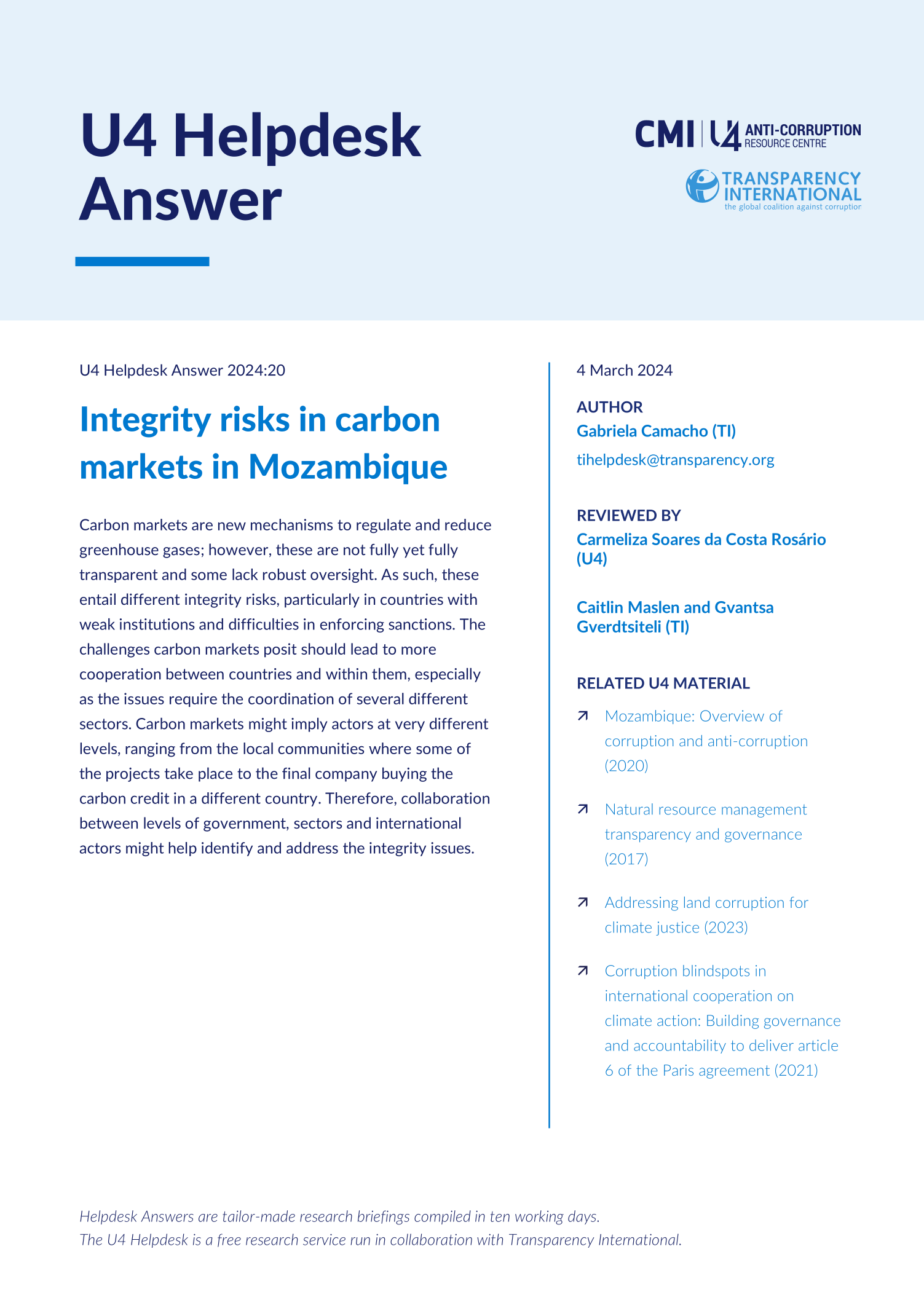Main points
- There are integrity, transparency and accountability risks in the carbon market including fraud and corruption (elite capture, bribery data manipulation, and undue influence over policy design and institutions).
- One of the biggest risks is related to land, especially in the context of weak land tenure. In Africa, as in other parts of the Global South, a phenomenon called “green grabs”, where land grabs are justified in relation to the environment, has been linked to the development of carbon credits.
- Because carbon offsetting requires the saving of emissions that would have otherwise occurred, the required counterfactual can be subject to speculation.
- Double counting, by which a carbon offset is counted in favour of two different emitters, is an intrinsic problem of carbon markets that requires stronger international governance if the market is to accomplish the goal of reducing emissions.


